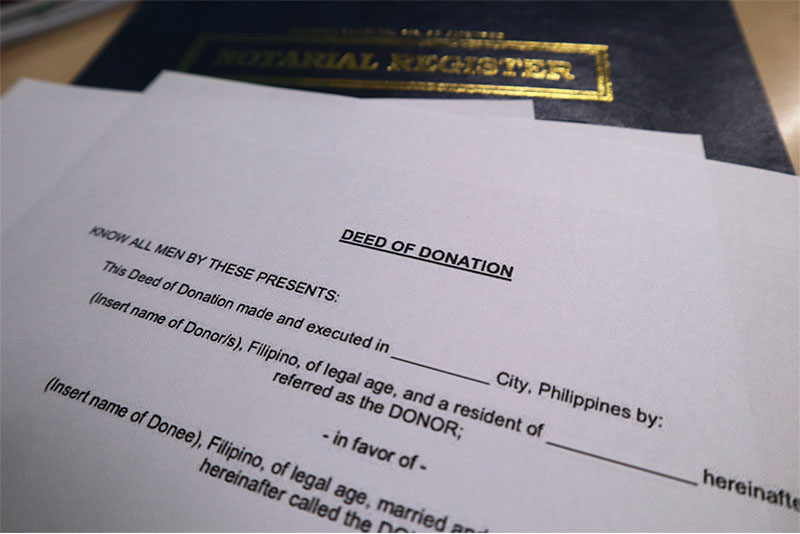Requirements of Deed of Donation
It is common for one person to donate assets to another. For example, an individual may donate an immovable property such as a house to a family trust for purposes of estate planning.
Even movable assets can be donated
In this article, I share with you the key requirements in a notarial deed of donation which is commonly referred to as a deed of donation.
Donor
The donor is the person donating the asset to the recipient. It can be parents donating to a family trust for purposes of estate planning. The donor is usually the lawful owner of the asset.
The fact that the donor is the lawful owner ought to be recorded. If someone is acting in a representative capacity this has to be clearly stated including the authority he or she has.
Authority can be in the form of special power of attorney or a resolution in the case of a natural person or juristic person, respectively.
The details of the donor have to be recorded. These include full names, dates of birth, identification numbers, and address.
Donee
The donee is the person receiving the donated asset. This can be a natural or juristic person. It is quite common for trusts to receive donations.
Details of the donee ought to be recorded fully. In the case of a natural person details required include full names as per identity documents, date of birth, identification number and address. For juristic or registered entities, their registration numbers have to be recorded.
Donation
It can be recorded that the donor freely and voluntarily donates to the donee the asset as described in the deed of donation. The deed of donation must make it clear that the transaction involved is one of donation so that it is not deemed to be a sale. For example, it can be clarified that the donee shall not pay any amount to the donor.
Asset being donated
The asset being donated ought to be recorded correctly and fully. If it is an immovable property, the details as per the title deed should be used.
Some people can even include the street address. A property can be described to include for example the improvements thereon, etc.
Conditions of the donation
There may be conditions attached to the donation. These may include the following:
The asset not to be sold by the donee.
For use by the donee.
Obligations for any taxes, whether it is the donor or donee who shall pay.
Absence of any liens, encumbrances, etc.
Date of donation
Like any agreement, the effective date of the donation has to be stated. This will determine when the donee has rights to the donated asset.
Signature of donor
The donor has to appear before a notary public and sign in front of that legal practitioner.
Signature and seal of the notary public
After signing by the donor, the notary public then signs the deed and puts his or her seal.
Conclusion
Donations are common in our lives and come in different forms. There are situations where it is important to document such donations due to their legal implications which may include tax. It is advisable to seek legal advice when engaging in donations of significant value.
Disclaimer
This simplified article is for general information purposes only and does not constitute the writer’s professional advice.
Godknows (GK) Hofisi, LLB(UNISA), B.Acc(UZ), Hons B.Compt (UNISA), CA(Z), MBA(EBS, Heriot- Watt, UK) is the Managing Partner of Hofisi & Partners Commercial Attorneys, chartered accountant, insolvency practitioner, registered tax accountant and advises on deals and transactions. He has extensive experience from industry and commerce and is a former World Bank staffer in the Resource Management Unit. He writes in his personal capacity. He can be contacted on +263 772 246 900 or ghofisi@hofisilaw.com or gohofisi@gmail.com. Visit www//:hofisilaw.com for more articles.-herald












